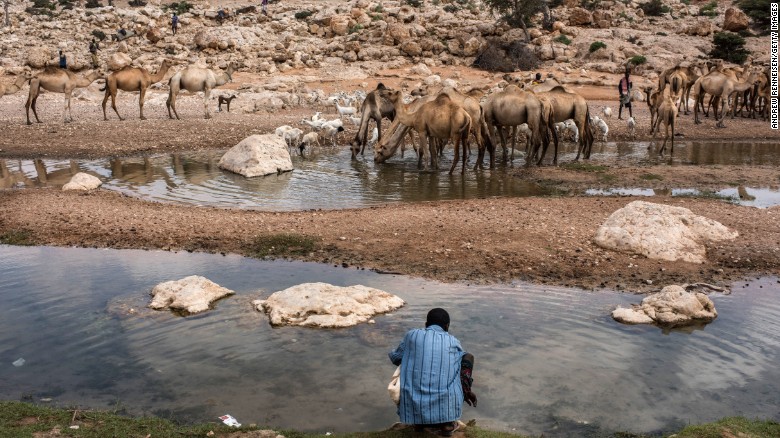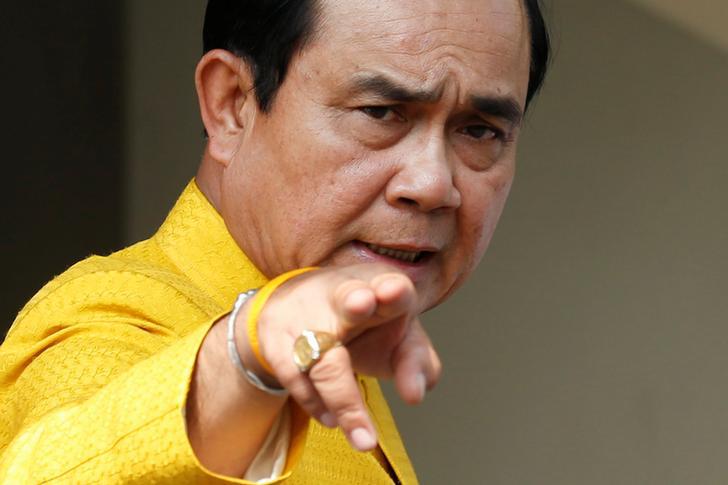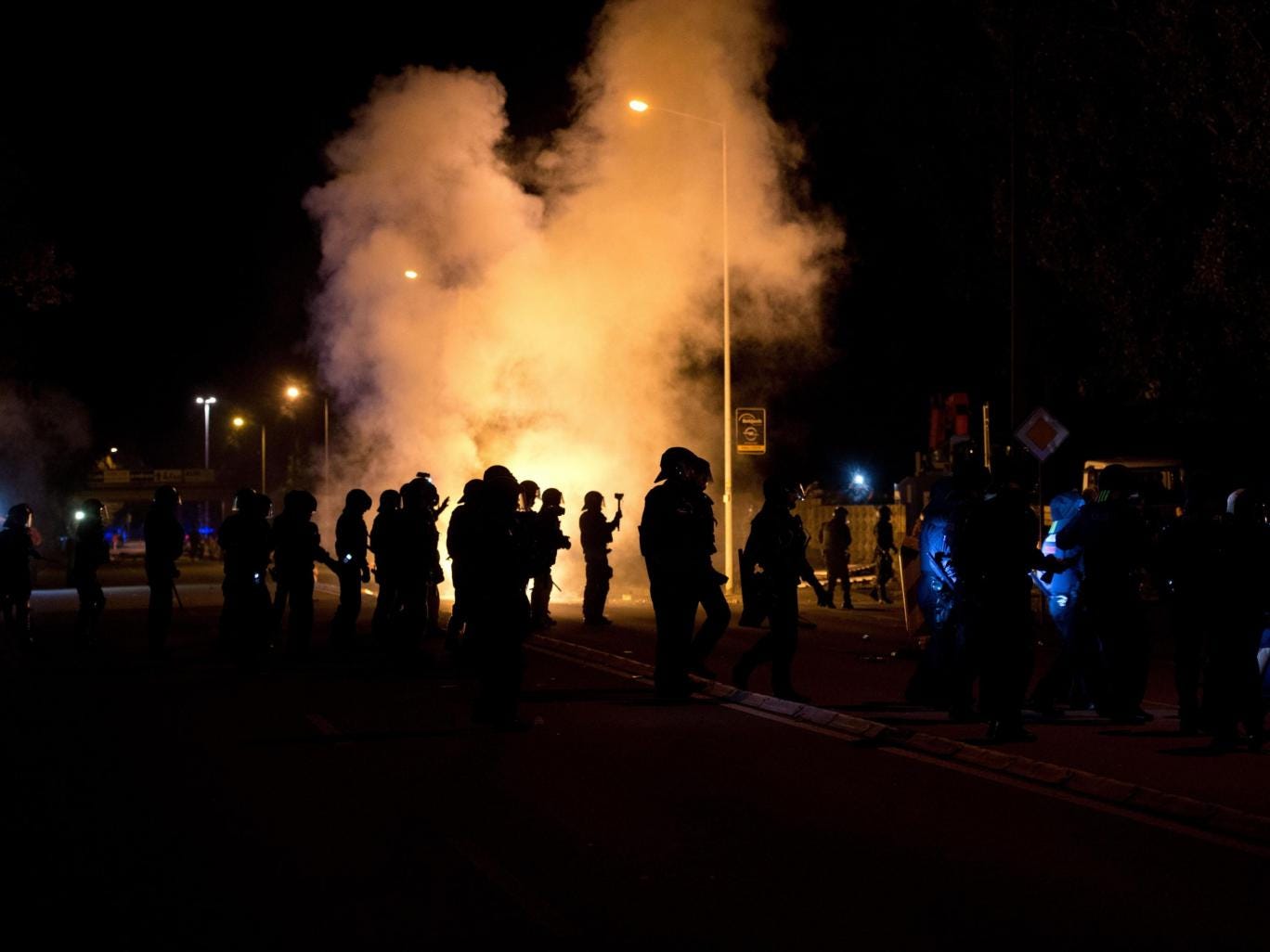By Samantha Netzband
Impunity Watch, Africa Desk Reporter
MOGADISHU, Somalia– The drought has worsened in Somalia leading to 110 deaths in the South Western Bay region, according to Somalia’s Prime Minister, Hassan Ali Haire. The drought is caused in part by the El Nino weather pattern, and is wrecking havoc on an already struggling country. Somalia has experienced low rain fall totals for the last two years. While over a hundred have died, many thousands are still in need of food aid.

Many travel long distances to this river that still has water. (Photo Courtesy of CNN)
Somalia President Mohamed Abdullahi Farmajo declared the drought a national disaster last week, hoping to show the rest of the world how bad the drought truly is. Food is unavailable because of the drought and domestic livestock are also dying. Thousands travel miles to the capital of Mogadishu for food aid, or to rivers that still have water. Some of the water that remains is not clean, which puts citizens at risk for diseases like cholera.
United Nations’ humanitarian coordinator for Somalia, Peter de Clercq said that the drought has the potential to develop into a full blown famine. de Clercq is scheduled to visit Somalia to discuss the humanitarian situation in the country. Somalia is one of four countries, along with Nigeria, South Sudan, and Yemen that is in desperate need of humanitarian aid. With limited resources Somalia will get more aid to help fight this drought, but it will most likely not be enough to save everyone. Somalia is no stranger to drought and has lost over 400,000 citizens in droughts that happened in 2010 and 1992.
For more information, please see:
AOL – Somalia Drought Threatens Thousands – 5 March 2017
BBC Africa – Somalia Drought: More than 100 Die from hunger in One Region – 4 March 2017
CNN – Somalia Drought: At least 110 Die as fears of famine grow – 4 March 2017
NBC – Somalia: 110 Dead From Hunger in Past 48 Hours of Drought – 5 March 2017



